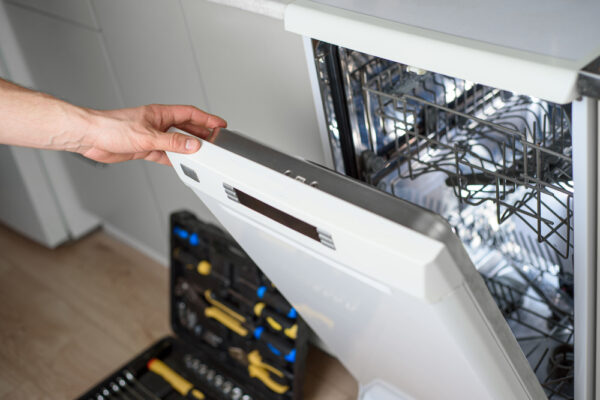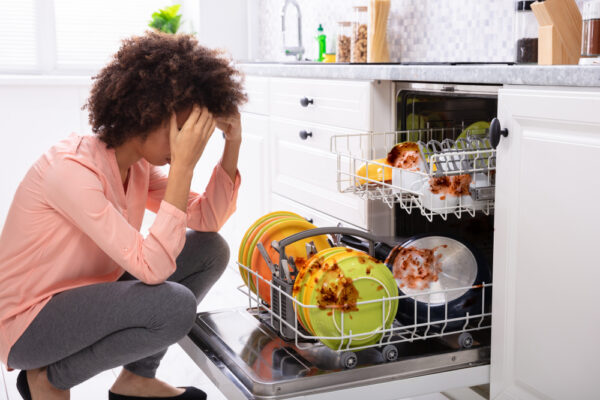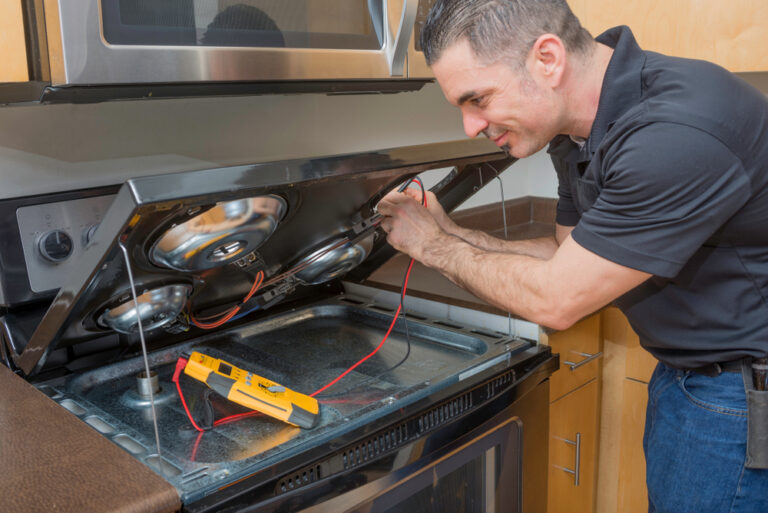
Can I Fix My Dishwasher Myself In Des Plaines?
Introduction
When your dishwasher starts acting up, the initial instinct might be to call for professional help. However, you may not always need to rely on appliance repair near me services. Sometimes, a little troubleshooting and a DIY approach can save you time and money. In this comprehensive guide, we'll explore if you can fix your own dishwasher in Des Plaines, offering tips, tricks, and insights based on expert advice.
Whether you're dealing with a stubborn leak or persistent noise, this article will equip you with the knowledge required for effective dishwasher repairs. We’ll cover everything from common issues to step-by-step solutions that might spare you from calling repair companies.
Understanding Your Dishwasher
How Dishwashers Work
Dishwashers are complex machines that combine water, detergent, and heat to clean your dishes. Understanding the basic components of your dishwasher is crucial to diagnosing problems effectively.
- Water Supply: The dishwasher relies on a steady water supply.
- Heating Element: This component heats water for optimal cleaning.
- Spray Arms: These distribute water evenly across the dishes.
- Drain Pump: Responsible for removing dirty water after a wash cycle.
By familiarizing yourself with these parts, you'll have a clearer idea of where problems might arise.
Common Dishwasher Problems
Before diving into DIY fixes, it helps to know what issues are commonly encountered:
Identifying the problem is half the battle won when it comes to effective repairs.
DIY Tips: Can You Fix Your Own Dishwasher in Des Plaines?
Absolutely! Many dishwasher issues appliance repairs can be addressed without professional help if you are willing to put in some effort and follow systematic troubleshooting steps.

Gathering Tools and Materials
To get started with your DIY repair journey, make sure you have the following tools:
- Screwdriver set
- Towels or rags
- Bucket (for drainage)
- Replacement parts (if necessary)
Having the right tools will make your job easier and more efficient.
Safety First: Disconnecting Power & Water Supply
Before attempting any repairs:
This ensures safety as you work on your appliance.
Step-by-Step Troubleshooting Guide
1. Diagnosing Drainage Issues
Common Causes of Drainage Problems
If your dishwasher isn’t draining properly, it could be due to one of several issues:
- Clogged filter
- Kinked drain hose
- Malfunctioning drain pump
How to Fix It
2. Tackling Noise During Operation
Identifying Noise Sources
Unusual noises can stem from various components:
- Loose spray arms
- Foreign objects stuck in moving parts
- Worn-out motor bearings
Solutions
3. Cleaning Dishes Effectively
Why Dishes Might Be Dirty
If your dishes aren’t coming out clean, consider these possibilities:
- Inadequate water temperature
- Blocked spray arms
- Low detergent levels
Steps to Improve Cleaning Performance
Dealing with Water Leaks
Identifying Leak Sources
Leaking dishwashers often have specific problem areas such as:
Repairing Leaks
Using Professional Repair Services Wisely
When to Call for Help?
While many issues can be resolved through DIY efforts, there are times when calling a professional is prudent:
Finding reputable professionals is easier than ever—just search “ who fixes dishwashers” or “ dishwasher repair near me” online for local options.
FAQs About Dishwasher Repairs
1: What should I do if my dishwasher won't start?
Check if it's plugged in properly or if there's an issue with the circuit breaker.

2: How often should I clean my dishwasher?
A monthly clean-up is advisable; however, deep cleaning every few months keeps it running optimally.
3: Can I use vinegar to clean my dishwasher?
Yes! Running a cycle with vinegar can help eliminate odors and buildup naturally.

4: What does it mean when my dishwasher shows an error code?
Error codes typically indicate specific malfunctions; consult your manual or manufacturer’s website for explanations and solutions.
5: Is it worth repairing an old dishwasher?
If repair costs are less than half of a new unit's cost, it usually makes sense to repair unless other factors weigh heavily against it (like energy efficiency).
6: How do I find qualified appliance technicians nearby?
Searching online reviews or asking friends/family for recommendations will yield reliable results quickly!
Conclusion
In conclusion, while some dishwasher repairs require professional expertise—especially when dealing with complex systems—many common issues can indeed be tackled through DIY approaches in Des Plaines! From understanding how dishwashers operate to identifying problems like poor drainage or ineffective cleaning cycles, this guide provides practical tips that empower homeowners like you!
So next time you're faced with an appliance hiccup, don’t hesitate—roll up those sleeves! Remember: sometimes all it takes is knowledge combined with determination to turn that frustrating situation around without needing costly service calls or extensive repairs!
By following these guidelines carefully—and ensuring safety at every step—you might just find that fixing your own dishwasher isn’t as daunting as it seems!